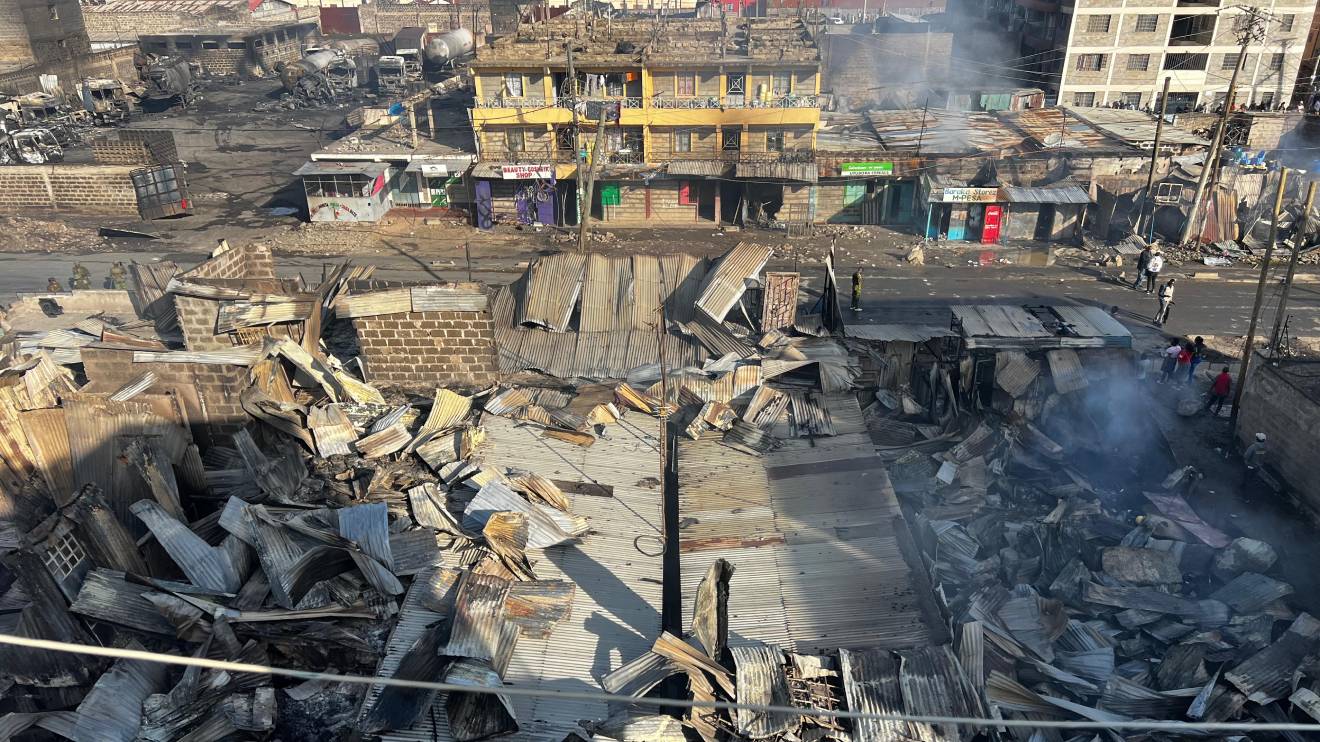The Energy and Petroleum Regulatory Authority (EPRA) has taken a firm stance against unsafe Liquefied Petroleum Gas (LPG) operations by suspending the licenses of 49 companies across Kenya.
This decisive action comes in the wake of the tragic Embakasi explosion that claimed seven lives, raising serious concerns about regulatory compliance and community safety.
Following a nationwide audit encompassing all 138 LPG plants, authorities identified a significant number operating in close proximity to residential areas, posing a substantial threat to public safety.
These facilities, primarily concentrated in Nairobi and Kiambu counties, fell short of crucial safety standards, prompting EPRA to revoke their licenses.
The Embakasi incident exposed vulnerabilities in EPRA's enforcement capabilities.
Read More
"We had two officers covering the entire Nairobi county, including both formal and informal settlements," explained Energy Cabinet Secretary Davis Chirchir, highlighting the critical need for increased manpower.
To address this gap, the government has established a specialized police force of 100,000 personnel.
EPRA's Director-General, Daniel Kiptoo, acknowledged the challenges in monitoring illegal operations, particularly those exploiting the cloak of darkness.
The illegal plant involved in the Embakasi incident, for instance, disguised itself as a garage during the day and morphed into a gas refilling facility at night, evading detection.
Moving forward, EPRA is collaborating with the Ministry of Interior and National Administration, alongside local authorities, to establish a multi-agency approach to eradicate illegal LPG operations.
This initiative aims to strengthen surveillance, prevent the emergence of new unauthorized plants, and ensure safe LPG distribution and usage across the country.
However, the issue of existing plants operating legally in areas later overtaken by residential development presents a complex dilemma.
"Some of refiling station were legitimately licensed but because human settlement had come in the two can’t co-exist. I am sure court cases will come out of that and that’s why we need to handle it carefully," stated CS Chirchir, anticipating potential legal challenges from these companies.
While EPRA maintains it diligently reviewed and rejected three applications from Maxxis Energy to build an LPG facility at the Embakasi site due to safety concerns, it acknowledged licensing an LPG plant for the same proprietor in Nanyuki.
Ironically, three days before the Embakasi tragedy, staff at the Nanyuki facility were apprehended for illegally refilling gas cylinders of other brands, raising questions about potential lapses in oversight.
The nationwide suspension of licenses serves as a stark reminder of the importance of prioritizing public safety and adhering to strict regulations within the LPG industry.
EPRA's multi-agency approach, coupled with increased enforcement capacity, represents a crucial step towards preventing similar tragedies and ensuring the safe use of LPG for the Kenyan populace.







-1757663582.jpeg)
